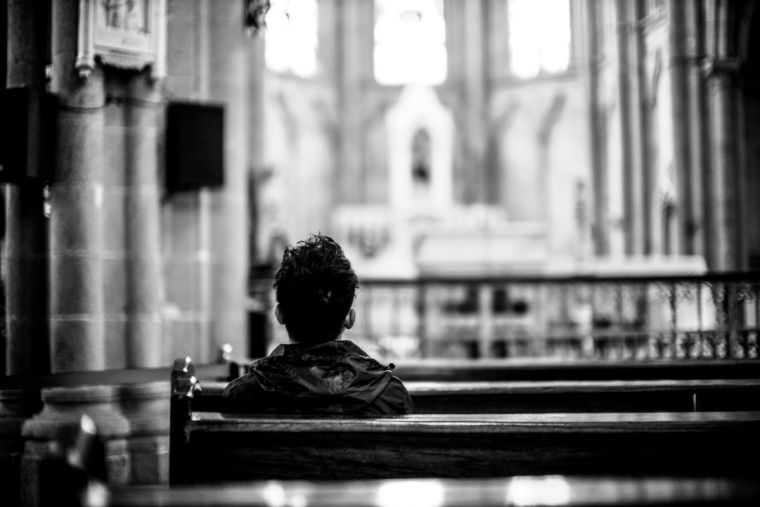Our challenge as the Church to seek out the lonely and isolated

When I was a boy, my family home was always extended to include the latest person desperately in need of companionship, support, family or maybe just a hot meal. From the elderly gentleman living opposite who, aside from us, had few friends, to a returning missionary family or the young person feeling like no one was interested, my childhood home became a refuge for those in need of others.
At the time, I found this both normal and frustrating. The juggling of who slept in which room, the adding of a place at the table or the miscellaneous wrapped Christmas gift for whoever might be joining us ... most of the time our home seemed to be changing in order to include those beyond our biological family.
This recent research, Hope Beyond, from Allchurches Trust looked at the key issues churches believe their communities will be facing both now, and in the year ahead, as a result of the coronavirus pandemic and the resulting lockdown. This key research shows that communities throughout the nation are preparing to combat an enormous increase in loneliness and isolation. A huge 78% of those surveyed expect this to be the most significant need in the next three months with 58% feeling the same when looking a year ahead too. The challenge in front of us is inescapable.
Prior to this season of lockdown, loneliness was already a growing issue in the UK and one that impacts across the generations. A surprising growth in younger people feeling lonely and isolated has been tracked over recent years too. The harm such isolation can cause has an impact both physically and mentally and can be devastating to people of all ages. It is a serious public health concern which studies suggest can be as harmful as smoking 15 cigarettes a day. As the church we need to step into this space and look out for those who are isolated, love those on the margins and do all we can to support those who are struggling.
This season has been deeply challenging for us all. There has been a much-used statement during this time that 'we are all in this together.' As we move out of lockdown, the church must hold to that statement as we seek to do all we can to serve those who are struggling. Perhaps it's time for us to have households like the one I grew up in? Can we extend our tables for those who are needy? Can we make time for the lonely? Can we provide community to those who don't have one? The church has always been about a collection of people sharing life together and inviting others to be a part of it. We cannot lose sight of those outside of our community as we move further out of lockdown and begin to rebuild.
One challenge is that the size of the problem seems simply too great for us to tackle on our own. It feels like we're too insignificant to make much of an impact. But then I remember the old story of the starfish on the beach. We can't do everything at once, loneliness and isolation won't be solved in an instant, but we can always make a difference. Here's that famous old story:
One day, an old man was walking along a beach that was littered with thousands of starfish that had been washed ashore by the high tide. As he walked, he came upon a young boy who was eagerly throwing the starfish back into the ocean, one by one.
Puzzled, the man looked at the boy and asked what he was doing. Without looking up from his task, the boy simply replied, "I'm saving these starfish, Sir".
The old man chuckled aloud, "Son, there are thousands of starfish and only one of you. What difference can you make?"
The boy picked up a starfish, gently tossed it into the water and turning to the man, said, "I made a difference to that one!"
As the UK seeks to adapt to a new normal, this research has challenged me personally, and should challenge every one of us, and every church in this nation too. Who can you reach out to? What difference can you make to someone else? Every person set free from loneliness and isolation and released into relationship and community is another significant step towards turning this situation around.
I love the parable of Jesus about leaving 99 sheep in order to rescue the single one that is lost and alone. Let's follow this example in our homes, streets and communities today, reaching out to those so often missed by the crowd and welcoming them to the family of God.
Gavin Calver is CEO of Evangelical Alliance. He is an ordained evangelist, a regular public speaker, and author.











